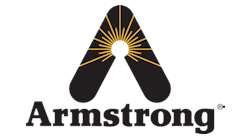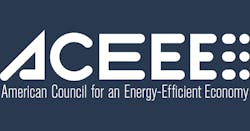Latest from Industry Event News
Sponsored
From March 21st through March 23rd, the American Council for An Energy Efficient Economy (ACEEE) hosted the 14th annual Hot Water Forum, the only national conference focused exclusively on hot water heating. Due to lingering pandemic concerns, the event was held virtually, via a Webex Events platform that allowed attendees to network, view recorded sessions, ask questions of speakers during live presentations and much more.
Platinum-level sponsors for the event were A. O. Smith and Rheem Manufacturing, with gold-level sponsor the Northwest Energy Efficiency Alliance, silver-level sponsors Bradford White and Con Edison, and bronze-level sponsor Nyle Water Heaters.
Founded in 1980 by leading energy researchers concerned about US dependence on foreign oil, the American Council for an Energy-Efficient Economy is a nonprofit research organization that develops policies to reduce energy waste and combat climate change. In the words of its mission statement, "We aim to build a vibrant and equitable economy—one that uses energy more productively, reduces costs, protects the environment, and promotes the health, safety, and well-being of everyone."
Agenda
More than 20 sessions were on the agenda at the Hot Water Forum, including panel discussions and Tuesday's Shameless Commerce networking event. (View the full program at www.aceee.org/sites/default/files/pdfs/Program%203-10.pdf.) A main point of discussion at the Forum was the future of heat pump water heaters, with no less than four sessions devoted different aspects of the topic:
Residential Heat Pump Water Heater Market Transformation: Overcoming Cost Hurdles in the Southeast (Monday, March 21st)
Learn how a collaboration of industry leaders in the Southeast effectively designed and deployed a unique HPWH program that significantly reduces product and installation costs, trains and retains a dedicated group of installers, and brings this super-efficient water heating technology to a deserving customer base.
Moderator: Paul Campbell, ICF Overview of AWHI’s Collaborative Approach to Reducing Heat Pump Water Heater Product and Installation Costs
Presenter: Owen Howlett, Advanced Water Heating Initiative (AWHI) Residential Working Group Lead Marketing Plan and Deployment, Outreach, and Assessment
Presenter: Nathaniel Jutras, U.S. Environmental Protection Agency – ENERGY STAR® From the South: Considerations for Advancing Heat Pump Water Heaters
Presenter: Maggie Kelley Riggins, Southeast Energy Efficiency Alliance Product Application and Training, Bulk Purchasing Channel, and Outreach
Presenter: Francois Lebrasseur, A.O. Smith
Gas Heat Pump Water Heaters (Tuesday, March 22nd)
In this session, three speakers will cover the emerging Gas Heat Pump Water Heating technology landscape, from program, utility, and technological perspectives.
Moderator: Paul Glanville, GTI Energy
Residential Gas Heat Pump Combis (Space and Water Heating) Landscape or What’s with Residential Combi Gas Heat Pumps?
Presenter: Ryan Kerr, GTI Energy
From Pilot to Program: Advancing GHP Technologies
Presenters: Mila Barbour, FortisBC James Allen, FortisBC
Towards a Cost-effective Residential Retrofit Gas Heat Pump Water Heater
Presenter: Magnus Ekblad, HeatAmp
Residential 120v Heat Pump Water Heaters: Manufacturers Perspective (Tuesday, March 22nd)
In this panel discussion we will hear from manufacturers about where the 120V HPWH fits in the overall water heater landscape, the technical and commercial challenges of this new product, and how to implement policies that will reliably promote this type of product.
Moderator: Jim Lutz, Hot Water Research
Panelists: Kevin Clark, Rheem Manufacturing Company; Dan Capelle, GE Appliances; Robert Aldrich, A.O. Smith; Ryan Hamilton, Nyle Water Heating Systems
Commercial Heat Pump Water Heaters (Tuesday, March 22nd)
This session will discuss strategies that energy efficiency programs can use in their efforts to integrate commercial heat pump water heaters into their portfolios, with the ultimate goal of enabling advanced energy and water savings and societal benefits.
Moderator: Bouba Dieme, CEE Commercial Heat Pump Water Heater Program Design – Guidance and Next Steps
Presenter: Colleen Collins, Cadeo Market Transformation Roadmap for Commercial Heat Pump Water Heating Systems
Presenter: John Morris, D+R International
Going Farther, Going Together: Commercial Heat Pump Water Heaters
Presenter: Bouba Dieme, CEE
Other key topics for the Forum included system design, codes and standards, workforce development, and sustainability. A key thread running throughout the entire event was the idea of equity, that clean water and sustainable water heating systems should be available to all, regardless of their socio-economic status. A special panel discussion on equity was held Tuesday, March 22nd.
Opening Remarks
The Hot Water Forum had it's kick-off on Monday, March 21st with a welcome from Steve Nadel of the ACEEE who thanked both attendees and sponsors. In his introduction he discussed local, federal and world-wide efforts at decarbonization. Speaking to the current carbon targets outlined in various agreements such as the Paris Accords, Nadel said that efficiency can get us half way to those targets, and "hot water is a huge component of this."
Then there were remarks from the event sponsors. Josh Green, VP of Government Affairs for A. O. Smith gave a warm welcome, calling the Hot Water Forum an event he and his company always look forward to. His company, he said, is moving forward with pragmatic pathways and solutions to decarbonize the built environment. He also said that while heat pumps were an important part of the equation, so was high-efficiency gas. Given the challenge, it was important for the entire industry to work together—and the Forum was an opportunity to do just that.
Karen Meyers, VP of Government Affairs and Regulation for Rheem then spoke about major market trends, including decarbonization, advances in technology, and the demands of the consumer. She noted that while heat pumps were still a small segment of the overall market, they were a fast-growing segment, with regulations expected to drive faster, wider adoption.
Meyers noted that Rheem currently offers over 5,000 different variants of its water heating products, and that product complexity would only continue to increase. That included, she said, connected products; at the end of 2023 there will be 4.7 billion Wi-Fi connected products collecting and sharing data. An important initiative for Rheem in the coming years, she said, will be to help with the standard-writing process for such products.
Plenary Panel
The opening panel discussion was moderated by George Chapman of Energy Solutions, who introduced the panel members:
Abigail Daken, U.S. Environmental Protection Agency
Claire Miziolek, Energy Solutions
Michael Sokol, California Energy Commission
Helen Walter-Terrinoni, Air-Conditioning, Heating, & Refrigeration Institute
Daken led off by noting that the EPA's Energy Star program is now taking carbon into account. It is now factored into specifications, into what the agency decides to work on, and into the criteria the program uses. Daken noted that the agency is working in a collaborative fashion with other federal agencies, specification bodies and associations such as AHRI and the NRDC. At the same time, the EPA is working to ensure that a key component of the Energy Star program remains: that end-users will not see an impact in performance when they adopt Energy Star-rated products and services.
Miziolek used her opening statement to talk about a decarbonization project in Massachusetts, a state that still gets 41% of its energy from natural gas. Greenhouse gas emission goals have state on track to be a majority-electric economy by 2050 (mainly due to the inherent efficiencies of electric technologies). By 2050, it is hoped, natural gas will shift into being mainly a balancing resource for the electric grid. Greater flexibility, she said, would help drive lower system costs.
Sokol spoke about the work being done by the California Energy Commission to create a 100% clean energy California. Equity—which was a major theme of the Forum—was a major concern of the Commission in all its efforts. He called the shift to heat pumps the most significant component of the Commission's ambitious plans, and that included the need to make sure those heat pumps were able to take advantage of low rate prices and renewable resources.
Walter-Terrinoni outlined the shift the Institute has spearheaded towards better, eco-friendly refrigerants, and the need for predictable, orderly transitions along the path to decarbonization. Right now, she noted, we are proceeding at an unprecedented pace. The NRTS is swamped with work, and a key concern should be finding ways to lessen the testing load. Even as we move forward, she said, we need to keep space open for innovation, and give ourselves the flexibility to adjust as new information comes to light and new technologies take their place in the water system.
The group then moved on to lively panel discussion.
Steve Spaulding | Editor-inChief - CONTRACTOR
Steve Spaulding is Editor-in-Chief for CONTRACTOR Magazine. He has been with the magazine since 1996, and has contributed to Radiant Living, NATE Magazine, and other Endeavor Media properties.



